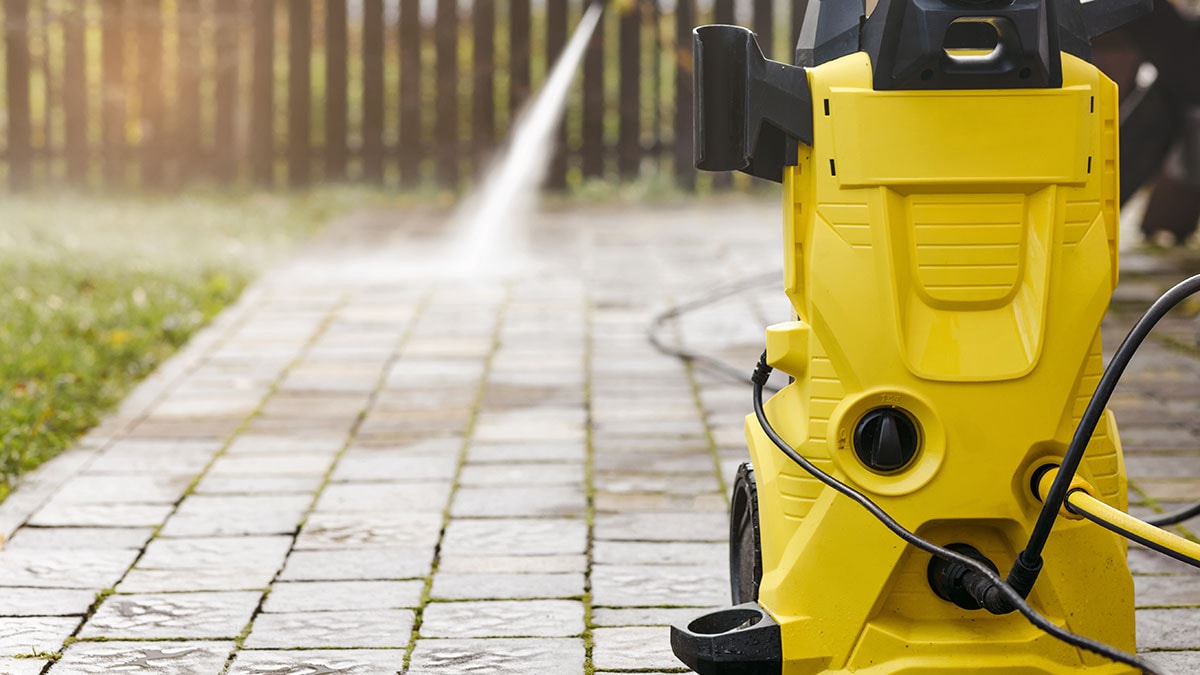Key points
- Pressure washers may be used more often during disaster clean-up when the risk of injury may be higher.
- When using a pressure washer, always follow the safety instructions included in the owner’s manual.
Dangers of using a pressure washer

A pressure washer is a power tool that sprays water at high pressures to clean large, sturdy surfaces such as buildings, farm equipment and roads. Pressure washers may be used more often during disaster clean-up when the risk of injury may be higher.
- The strong spray from a pressure washer can cause serious wounds that might first appear minor. Wounds that appear minor can cause a person to delay treatment, increasing risk for infection, disability or amputation.
- The fast, strong spray can throw objects that strike and injure others who are close by.
- Electric shock can occur if the pressure washer is not used properly and if safety instructions are not followed.
- Using small, gasoline-powered engines can cause carbon monoxide poisoning. Workers should not use any equipment powered by gasoline engines inside buildings or other partially enclosed spaces unless the gasoline engine can be placed outdoors and away from air intakes.
Safety precautions
Things to do:
- Always test the ground fault circuit interrupter (circuit breaker or outlet) before using a pressure washer.
- Always plug a properly grounded pressure washer into a properly grounded receptacle.
- If an extension cord must be used, keep the pressure washer's power cord connection out of any standing water, and use a heavy-duty extension cord with components rated for use in wet locations. Keep both the power cord and extension cord connections as far away as possible from the item being washed and away from any water runoff.
- Wear rubber-soled shoes that provide some insulation when using the pressure washer.
- Always have a qualified electrician check the pressure washer for electrical problems after it has tripped a circuit breaker.
Things NOT to do:
- Never point a pressure washer at yourself or others.
- Never attempt to push or move objects with spray from the washer.
- Never use a gasoline powered washer in an enclosed space or less than 20 feet from any window, door, or vent. Learn more about how to prevent Carbon Monoxide Poisoning.
- Never cut or splice the pressure washer's power cord or extension cords.
- Never remove the grounding prong from the pressure washer's power cord plug or the extension cord.
- Never allow children to operate a pressure washer. Keep children at a safe distance when an adult is using a pressure washer.
What to do if you get hurt
If you are hurt by a pressure washer:
- Call 911 if emergency help is needed.
- Take care of any wounds:
- Before treating the wound, wash your hands with soap and clean water.
- Remove any object that is in the way of caring for the wound.
- Put pressure on the wound with a clean cloth to stop bleeding.
- After bleeding has stopped, pour bottled or clean running water over the wound.
- Gently clean around the wound with soap and clean water.
- Pat dry and use an adhesive bandage or dry clean cloth to cover the wound.
- Leave unclean wounds open.
Persons who have high pressure spray wounds are urged to get medical attention as soon as possible. A medical professional might X-Ray the injured area, provide a tetanus shot and antibiotics, or make a referral to a specialist.
